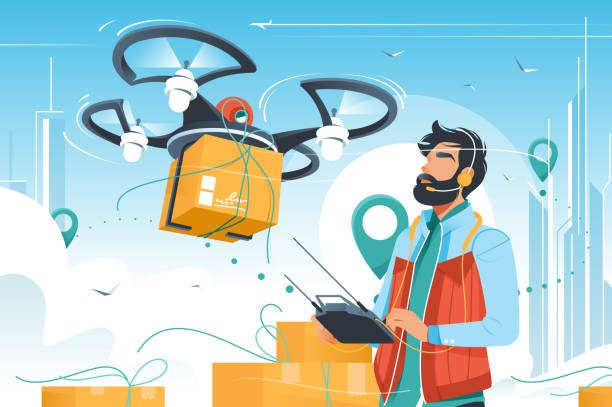Jumia’s Drone Delivery Dabble Is Putting A New Frontier To Test

Africa’s leading e-tailer, Jumia, announced it is rolling out a drone delivery service earlier this month after quietly trialling the operation in hard-to-reach parts of Ghana earlier this year.
In what appears to be a bold but notably complex endeavour to extend its delivery channels to include aerial mediums, Jumia is adding this new dimension by relying on a partnership with Zipline; a U.S. company known for using Unmanned Aerial Vehicles (UAVs) to ship medicals supplies and other essentials to difficult terrains in Africa – initially Rwanda, before expanding to Ghana and Nigeria more recently.
An initial pilot was carried out across multiple use cases with varying product assortment logging up to 2,500 kilometres in testing, the companies shared in a statement. Deliveries to outlying Jumia hubs as far as 85 kilometres from the take-off location at the Zipline operational hub in Omenako (Ghana) were completed in less than one hour with real-time visibility of the drone for all stakeholders in the delivery cycle.
Jumia is looking to leverage Zipline’s expertise in delicate logistics and penetration of hard-to-reach places. It dovetails with the e-tailer’s recent efforts to expand its delivery capacity while keeping its carbon footprint low; as is evident in recent partnerships with green mobility solutions such as Solar Taxi in Ghana and eBee in Kenya. For Zipline, it’s an extension of its novel logistics endeavour to more commercialised operations.
This move comes at a time when Jumia is making decent strides in revving up the speed and reach of its deliveries; the company reported its latest results that 60 percent of its deliveries were completed within 24 hours in the last quarter and a new quick commerce unit is being rolled out across 8 of its 11 African markets.
Drone delivery, which Jumia says it plans to also launch in Nigeria and Cote d’Ivoire eventually, is aimed at providing “much-needed access to rural and remote areas where conventional delivery services have challenges,” according to Apoorva Kumar, Jumia Group COO. In the same vein, Daniel Marfo, SVP for Zipline Africa, reckons drone delivery will “make shopping on Jumia even more convenient, sustainable and accessible for its customers.”
That, however, is a claim that would take some doing to establish going forward as commerce-focused drone delivery has struggled to live up to the hype that engulfed the space around the early-2010s when global behemoths such Amazon and DHL launched efforts at shipping items with UAVs.
Those efforts turned out to be short-lived as those projects, as well as a few other splashy drone delivery investments, have either struggled or collapsed. Operational, technical, and regulatory bottlenecks are commonly cited as reasons responsible for the decision to shelve the endeavour, sparking industry rhetoric that the model is hampered by flaws and might need decades to develop well enough to work at a reasonable scale.
Nevertheless, continued intensive efforts by companies like Zipline, which claims to have completed over 382,000 commercial deliveries and delivered over 3 million healthcare products with drones, is imparting some degree of commercial viability to the industry, and the recent tie-in with Jumia can be expected to put that to test.
Feature Image Credits: iStock